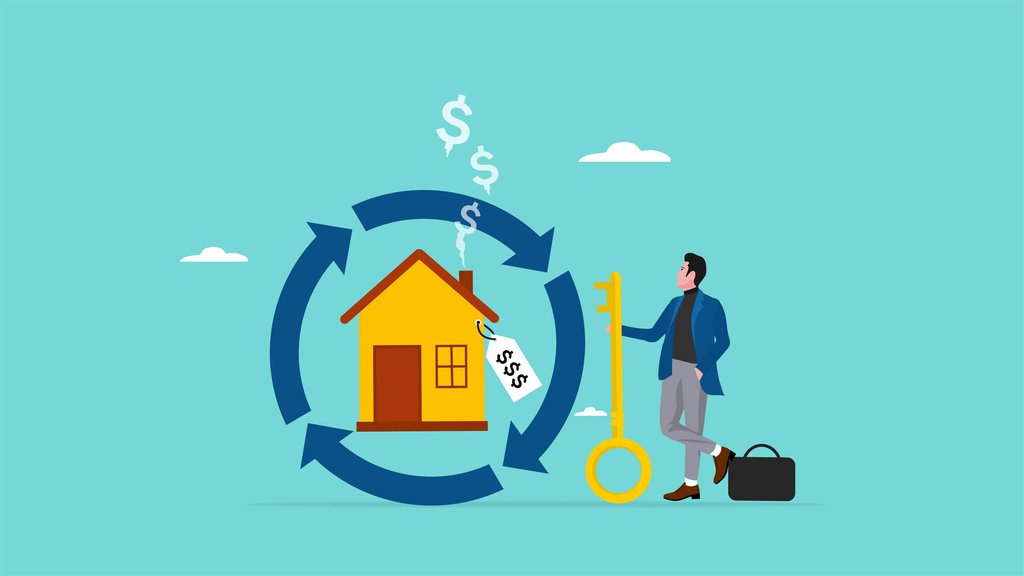Alternative Options to Reverse Mortgages

With an aging demographic in Canada, the burgeoning group of retirees over the age of 55 is looking for ways to access their home equity, to facilitate their retirement years, and possibly pay for medical expenses. The reverse mortgage is one solution that is advertised to this group to the far, to the extent that it has become quite a trend. Although providing quick financial relief, reverse mortgages do not require homeowners to sell or leave the house; there are considerable disadvantages as well, particularly in the matter of long-term costs and estate plans. This begs the question for many Canadian homeowners: is there an alternative to a reverse mortgage ?
This guide will explain what a reverse mortgage is, and even more importantly, look at wiser, and oftentimes safer alternatives. These options provide homeowners with a chance to use equity while retaining ownership, control over interest accumulation and flexibility.
What Is a Reverse Mortgage? Why Are Homeowners Looking for Alternatives?
A reverse mortgage is a loan product that enables homeowners who are 55 years and over to borrow using their homes as collateral. Unlike a regular mortgage, no monthly payment is required. Selling the home, moving out permanently, or the passing of life ends the loan, and interest accrues over time. Instead, the major selling point is cash now, no need to sell.
This endeavor, however, may be accompanied by costly compromises in terms of money spent. Because no payment is made on time, the loan rapidly, the loan swallows up the homeowner’s equity. In some cases, homeowners may owe more than what their home is worth when the loan is paid off, and by the time the homeowners have lost a lot of their money, especially if the value of houses has dropped or the loan term is spread over the years.
In addition, reverse mortgages complicate estate planning. Because the loan is paid when the home is sold, heirs may have to sell the property very quickly, often hurriedly in an effort to pay the lender . There also are up front costs and limitations on the amount of equity that can be borrowed making it less cost effective compared to other methods of financing. This has led a lot of Canadians to question: do I have an option other than a reverse mortgage that can protect my financial future?
Exploring Smarter and Safer Alternatives
There are several alternative options available to homeowners who would like to tap into their liquidity without giving up their ownership or facing the disadvantages of a reverse mortgage. Some of the most commonly proposed solutions are home equity lines of credit, home equity loans, and refinancing. All have their positive and negative points, but they all share this: reduced long-term cost and increased maintenance of equity.
Home Equity Line of Credit (HELOC):
One of the best alternatives to a reverse mortgage is a Home Equity Line of Credit (HELOC) . A HELOC feels like it is a credit card, secured against your home. Your creditworthiness is pre-approved for available credit, which you use whenever you need to, paying interest on the borrowed amount alone. The convenience makes HELOC very popular with homeowners who require emergency funding or who expect to pay out in installments. One of the great advantages is the flexibility to repay and borrow without reapplying. HELOCs do have monthly payments and good credit history, and are, therefore, ideally suited for borrowers with regular income or pension streams.
Home Equity Loan
This type of product, or second mortgage , is a lump-sum, fixed-interest, monthly payment product. It's suited to homeowners who need quite a lot of money at one time, for home renovations or to manage debt, but who want payments fixed and avoid ballooning costs from the potential risk of future interest hikes, possible with a reverse mortgage. Because the interest does not accrue and the loan balance decreases over time with each monthly payment, the borrowers retain more of their equity with time.
Mortgage Refinancing
If your mortgage features high interest or terms, refinancing can reduce monthly payments and even extract part of the home's value through a cash-out refinance. This lets you have money for surprise needs without compromising future home value. Refinancing is best suited for homeowners with excellent credit ratings and income to secure new terms.
“ Reverse mortgages are advertised as a lifeline by banks, but for many, they still quietly erode generational wealth. Considering alternatives means that homeowners remain in charge of their future financials.”
— Victoria Ishai , Mortgage Agent Level 2, Clover Mortgage
Comparison Table of Reverse Mortgage Alternatives
| Option | Repayments | Equity preserved? | Best suited for |
|---|---|---|---|
| Reverse Mortgage | No | No | Seniors with low income and high home equity |
| HELOC | Yes | Yes | Retirees with steady income |
| Home Equity Loan | Yes | Yes | Those needing a one-time large payout |
| Mortgage Refinancing | Yes | Yes | Borrowers with high-interest mortgages |
Conclusion
Although reverse mortgages may appear to be a convenient way of accessing cash during retirement, long-term financial implications are the main reason why considering other options is important. Whether it’s home equity loans and HELOCs or refinancing or even renting of portions of a property, countless paths can access liquidity without the financial costs.
Contact us at Clover Mortgage to learn how to navigate complex borrowing decisions with conviction.
FAQs
What is the major disadvantage of a reverse mortgage?
The greatest deficit is compounding interest. Since there are no payments, the loan increases over time, quite often eating up a lot of the homeowner’s equity. And this can decrease inheritance to the family members and make the estate planning more complex.
Is a home equity loan better than a reverse mortgage?
In most cases, yes. Home equity loans have lower interest rates, fixed repayment terms, they minimise the devaluation of the home less. They are perfect for those borrowers who can make monthly payments and would like to safeguard their estate.
Can you ever get out of a reverse mortgage?
Yes. Reverse mortgages are due at any time typically by selling the home, a refinance with another loan or other means. However, there may be charge or administrative fees for early repayment, so it is wise to read the terms of the loan carefully.




